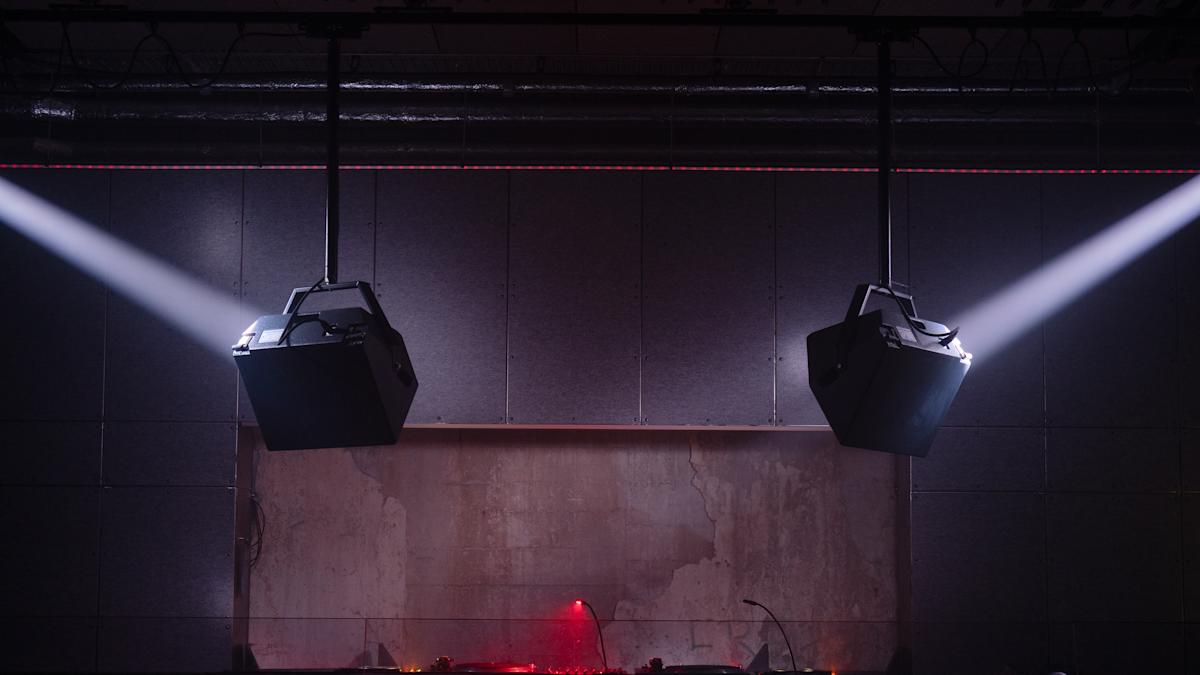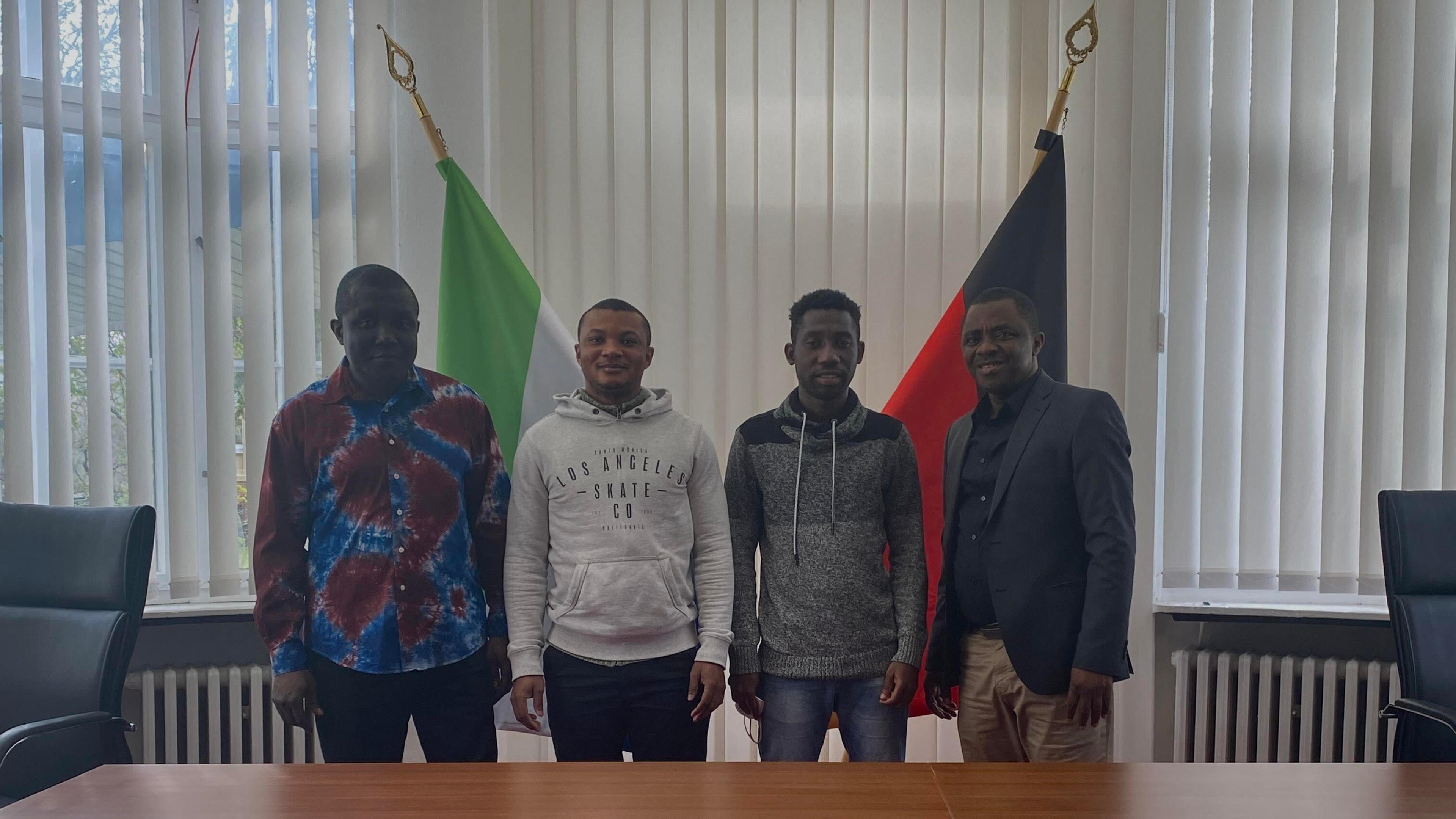
Heavy Feelings and Refuge Worldwide break common ground
We head to Wuppertal in February for a night at Open Ground.
Loading

Seeking sustained solutions for marginalised refugees.
By Veronika Kailich
Bridges over Borders (BoB) is a community-based collective in Berlin who are supporting BIPoC, LGBTQIA+, and other marginalised individuals entering Germany from Ukraine.
The organisation, which currently houses and supports around 60 refugees, aims to provide long-term housing solutions, financial aid and assistance in navigating the German bureaucratic process. The group organically evolved in early March to safely transport and accommodate refugees who were facing racist discrimination during attempts to cross the Polish-Ukrainian border.
We sat down with editor and culture writer Harriet Shepherd, who is an early member of BoB, to learn more about the organisation. Shortly after the war broke out, many people took the initiative to drive to the Polish-Ukrainian border after hearing that Black people were being tormented, beaten and held at gunpoint by police and army officials. Two of Harriet’s close friends, Benjamin and Jon, brought back a Congolese family of eight, including a two-week-old baby, a four-year-old and their grandmother.
From that point, BoB developed into a structured group. Friends and friends-of-friends came together to offer support with driving, sourcing housing, social work, hot food deliveries and legal advice. A week or so later the group was operating under the name Bridges over Borders. ‘It happened incredibly quickly,’ Harriet tells us, ‘it was amazing to see how people mobilised to support wherever they could.’ At this point, the government was still failing to provide clear legislation about the legal status granted to refugees, or how laws created for Ukrainian nationals would affect other refugee groups.
BoB works alongside organisations such as Tubman Network, EOTO and Casa Kuà to share resources wherever possible, and has grown to 30 members, bringing together a broad range of experience in social work, policy, activism and beyond.
Thank you for carving time out of your busy schedule to meet! Can you tell us about yourself and how the organisation originated?
Essentially, we are a growing group of friends and volunteers working to bridge the gap between marginalised individuals arriving from Ukraine and different aspects of German life and the bureaucratic system. We aim to support and facilitate access to everything from housing, food, finance, and medical support to social work, language courses, sports, schooling, jobs, and access to different kinds of leisure activities as well. We are working closely with other local organisations to pool resources and help eachother wherever possible, as well as internationally recognised organisations such as the IOM, UNHCR, ORAM etc.
The organisation evolved quite organically after some friends decided to drive to the borders, in response to the news of discrimination against BIPOC and LGBTQIA+ people being denied safe passages out of Ukraine. From there it was a case of getting needs met—we had to start building structures to find housing, provide food, and help communicate legal updates, as the government was failing to do so. We are currently supporting around 60 people.
Can you give us an overview of how BoB is structured? What are the various branches of the organisation?
We are made up of multiple small teams that all work closely with one another. We don’t really have any hierarchical structure—everyone brings what they can to the team, and supports each other when needed.
BoB started with a team of drivers, who took it upon themselves to provide safe transport from the borders, and the housing team was formed almost in tandem. The housing team work relentlessly to connect people with private hosts for temporary, mid-, and long-term housing solutions, which is of course the ultimate goal.
I work as part of the social work team with a group of professional social workers, immigration counsellors, and activists. We handle everyone on a case-by-case basis, to provide ongoing assistance with bureaucratic and legal matters (with the help of professional legal advisors) as well as everyday needs.
We also oversee a group of social support volunteers, each assigned to a particular family, individual, or group being housed together. These volunteers assist with the day-to-day side of things and act as a friendly faces and social contacts, checking in with people in-person and over the phone, hanging out, showing people around the city, doing activities, and accompanying them to Burgeramt visits or doctor’s appointments. We always try to match volunteers with guests by language, location and cultural background where possible. We’re also supported by friends who are gathering information and opportunities for study and work—they host CV workshops, connect people with advisors and try to actively search for jobs that match each individual’s skill set and experience.
Our donations team handles all material donations like clothes and furniture and responds to any specific needs communicated by the social work team or social support volunteers. There’s also a small team overseeing our incoming and outgoing communication—including social media, email etc.—which is a mammoth job but so essential, we could really use some additional help in this area!
Our logistics team is responsible for organising weekly grocery and cash pick-ups for people who are not yet receiving social welfare, and coordinating transport when people need to be re-housed or driven to appointments.
The medical team organises any urgent appointments or vaccinations that might be needed and is constantly updating a list of doctors and mental health professionals who are willing to work pro-bono.
And of course, we also have the finance people, who manage our accounts (our main donations are collected through Mensch Mensch Mensch e.V.), and organise different fundraisers.
Europe’s embrace of Ukrainian refugees has spotlighted the ways that refugees of colour seeking asylum from other countries have often been met with outright denial. Have you found that your organisation’s work has helped shift some perceptions or facilitated discussions around this two-tiered system?
It’s so important for civil-society groups and community-based organisations who 'do the groundwork' to be in exchange with the groups that are able to affect major change if they want to. Sharing our experiences with other organisations, groups, and volunteers who deal specifically with BIPoC has become a very important part of our work, especially when it comes to the lack of solidarity and downright denial of humanitarian aid. The mere existence of organisations like ours, and others who have similar aims and objectives, demonstrates the glaring disparities within systems and structures built to 'support' people.
On a smaller scale, we're seeing it spark conversations among our extended community. It’s something we want to talk about more on social media too, but haven’t really had the capacity.
How do you work towards the integration of refugees over the long term?
Sustainable long-term integration is our main objective. This is why we really try our best to understand the realities of people’s status and their different options. We have an amazing partnership with the GFBM, who have offered full-time certified German and vocational courses, and who are creating more classes as demand grows. Hopefully, this opportunity will soon be available to many other people outside of just our group.
We are trying a multitude of different strategies to secure long-term housing in Berlin and beyond, and are doing our best to find jobs and educational opportunities that fit our guests. It would be amazing if we could create a network of solidarity support structures throughout Germany and beyond to ensure the support of many more.
At the beginning of the invasion, it felt like there were a lot more people offering places to stay, volunteering at train stations or making an effort to support in some way. Have things changed over the last few months?
The offers of solidarity are not flooding in at the same rate as a couple of months ago by any stretch, but we are still getting new messages every week from people willing to offer their time and efforts.
What are the main challenges you face now?
The biggest struggle by far is finding long-term housing—it’s that ‘catch 22’ of having to have Anmeldung to do anything in Germany—to open a bank account, start working, apply for welfare, enroll into school or language courses etc. It’s also difficult to manage all this work in our own unpaid time.
Finding affordable housing can be a nightmare in Berlin even when you have an impressive backlog of bank statements, a letter of recommendation, and a Schufa. We are super proud to say that in two months, we’ve managed to secure 7 long-term apartments with Anmeldung, which are now housing 12 people, and whose landlords have offered initial rent-free periods.
Thanks to generous donations, going forward we are able to pay a bit of rent support, so our housing team is coming up with creative ideas to find accommodation in other ways, contacting anyone who might prove useful in the process of finding homes for new Berliners.
How do you assess or categorise the individuals or groups that take higher priority?
We talk to people and try to understand what their needs are. Some cases are more straightforward, others are complicated and might require more legal advice, for example. Some people have ongoing medical conditions which require more attention, others are fit and healthy. Some groups of friends have travelled together, but are open to being split up if it makes it easier for them to find housing—others are families with small children, who we prioritise keeping together. But we do not want to play into the narrative of a logic which categorises people according to their utilisation value and then prioritises by that standard.
Finally, is there anything else you'd like to add? What are worthwhile ways in which our readers can help?
For every story that reaches us, there are literally millions we do not hear—of those who are stuck at the borders, kept in detention centres, and never make it to safe places, or who make it to Europe only to be met with hostile authorities and bureaucratic practices, which make it impossible to get support.
Our work is just a drop in the ocean but hopefully is able to create visibility for those who do not get their fair share of solidarity, and whose stories have long dropped out of mainstream interest. It’s evident that we have the space and funds to work towards borderless solidarity, we just need to mobilise to do so.
If you want to help, in whatever way, please just contact us. We’re always looking for Berlin-based volunteers who are able to accompany people to amt appointments and in-person support, but whether you’re a social worker, an event organiser, or just want to take photos for our social media, we want to hear from you!
Discover more about Bridges over Borders on their Instagram. You can donate and offer to host here, or email them directly.

We head to Wuppertal in February for a night at Open Ground.

We are partnering with adidas on a 4-part series in February.

Join at Niemetzstrasse between 28th and 30th January.